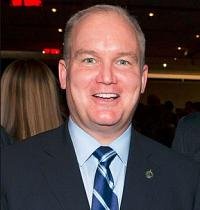New Conservative Party Leader O'Toole shows complete ignorance on systemic racism in Canada
Since the death of George Floyd at the hands of the Minneapolis police, it has sprung a wave of protests globally, prompting Canadians to look closely into systemic racism in the country.
The extent at which systemic racism is being swept under the carpet in Canada was once again brought into the spotlight when Erin O’Toole, new conservative leader, failed to agree that systemic racism exists in Canada.
During an interview with Mercedes Stephenson, host of West Block, O’Toole commented on the importance of eradicating racism from the society but refused to admit the existence of systemic racism, or what exactly it is.
O’Toole said he believes racism exists and he committed to phasing it out of the society but the term ‘systemic’ does not have a definition.
“I fight for people that wear a uniform. And when you use a term like ‘systemic,’ some of those people feel that you’re calling them racist,” he said. “There is no definition. It gets tossed around.”
Clearly, O’Toole’s comments show complete ignorance about systemic racism and how it affects the Canadian society. However, there is widespread confusion about the concept of systemic racism, and this has led to a lot of people making wrong comparisons and ultimately, stepping on many toes.
In June, RCMP Commissioner,Brenda Lucki, affirmed during a session with the parliamentary committee that there is systemic racism in the RCMP but, completely missed the mark when asked to cite an example. She went on to describe how there is a recruitment bias that favours taller people during the obstacle course test for new officers, adding that cultural differences and gender can influence one’s height.
She then went on to talk about an aptitude test before directing the question to a subordinate.
However, the concept of systemic racism is not centred on individual behaviour but how the society works and discriminates certain communities. Therefore, even ‘good people’ can be guilty of systemic racism.
An Ontario Superior Court judge aptly put while sentencing a black man, 25, on gun possession charges, that the offender has had a disadvantaged life from birth due to poverty, anti-black racism and segregation in Canada. Therefore, this was simply not the normal ‘unfairness of life’ but structural and systemic.
Black Canadians are victims of systemic racism and according to the most recent census data, they face much more difficult economic obstacles than white Canadians or those from other racial groups. There’s an income gap between black Canadians and non-visible minorities as the 2016 data reports an average of $37,000 annually for first-generation black Canadians and $50,000 for immigrants of non-visible minorities.
In an interview, Andrea Davis, co-ordinator of the York University’s Black Canadian Studies Certificate and chairman of the department of humanities, said the numbers are quite disturbing and people often assume there’s ‘a good reason for this disparity’. However, the reality is that black immigrants are in a biased system that makes negative assumptions about them due to their race.
While most Canadians are familiar with George Floyd and Trayvon Martin, very few Canadians are aware of some of the victims of police brutality in Canada—and this is evident in O’Toole’s denial of systemic racism. Black Canadians such as D’Andre Campbell, Olando Brown, Jermaine Carby and many more have been killed by the police in ‘controversial’ circumstances.
In fact, black people in Toronto are 20 times more likely to be shot by the police than white residents. They also account for 25 per cent of police-related shootings, despite making up only about 9 per cent of the entire city’s population.
With lots of ongoing debates and protests sparked by high-profile police killings, the issue of systemic racism isn’t limited to the justice system. It impacts lives through access to quality education, equal employment opportunities, generational wealth, attaining leadership positions, access to quality health care and housing, societal influence and many more from a system that is largely controlled by white supremacists.
O'Toole's ignorance and failure to understand historical fact on systemic racism are uncharacteristic of a leader who is supposed to play an important role in a multicultural society like Canada.
In a video shared by CBC, Rinaldo Walcott, black diaspora cultural studies professor at the University of Toronto, said that the denial of members of the Canadian government is “part of the system of systemic racism”. Walcott added that Canada, just like the U.S. is founded on a history of systemic racism with both countries having attempted genocide and slavery targeted at indigenous people.
If only O’Toole searched through the history books, he would find all the proof he needs. Between 1628 and the early 2000s, there has been a long history of slavery, discrimination and maltreatment by those of African ancestry, Jews, Chinese and other visible minorities in Canada.
Walcott added that leaders should offer more substance than symbolism when tackling systemic racism by making actual changes in policies, practices and existing systems.
With the next federal election still a few years away—and current PM, Justin Trudeau entangled in a controversy around the WE Charity—O’Toole and other members of Parliament who fail to stand against systemic racism and call it out for what it is are unfit to take up any leadership position.
Comments
There are 0 comments on this post













